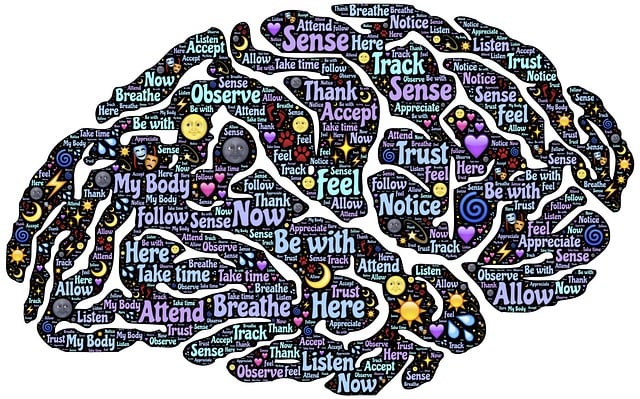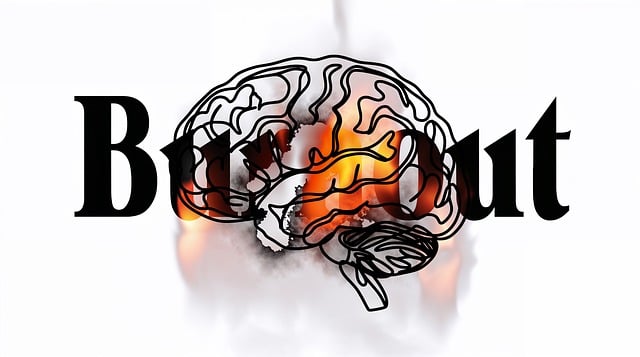In an unpredictable world, Broomfield Family Counseling Therapy (BFCT) leads in crisis intervention training, empowering individuals and communities to face mental health challenges head-on. Their comprehensive programs combine theoretical knowledge with practical skills, teaching de-escalation, trauma-informed care, and effective communication strategies. Through interactive workshops, role-playing, and resilience-building exercises, BFCT equips teams to handle diverse crises sensitively and effectively. This training promotes cultural awareness, leads to timely interventions, emotional healing, and ultimately, builds resilient communities. Beyond crisis intervention, BFCT supports families in strengthening relationships and resolving conflicts, fostering open communication and indelible bonds.
In today’s complex social landscape, effective crisis intervention is more crucial than ever. This article explores the vital role of specialized training programs, focusing on the expertise of Broomfield Family Counseling Therapy. We delve into the necessity of Crisis Intervention Teams (CITS) in modern support systems and their significant impact on community well-being. By examining essential components, benefits, and challenges, we uncover strategies to enhance crisis response skills, highlighting the transformative potential of training programs like those offered by Broomfield Family Counseling Therapy.
- Understanding Crisis Intervention Teams: A Necessity in Modern Support Systems
- The Role of Broomfield Family Counseling Therapy in Training These Teams
- Essential Components of an Effective Crisis Intervention Team Training Program
- Benefits and Impact on Community Well-being
- Challenges and Future Directions for Enhancing Crisis Response Skills
Understanding Crisis Intervention Teams: A Necessity in Modern Support Systems

In today’s fast-paced and often unpredictable world, crisis intervention teams have become a vital component of modern support systems. These specialized groups, often comprised of professionals from various disciplines such as Broomfield Family Counseling Therapy, play a crucial role in helping individuals and communities navigate unforeseen challenges and traumatic events. By providing immediate and targeted assistance, these teams can significantly mitigate the impact of crises, fostering resilience and coping skills development among those affected.
The necessity for effective crisis intervention strategies cannot be overstated. Whether it’s managing stress during times of global uncertainty or assisting individuals grappling with personal crises, organizations like Broomfield Family Counseling Therapy offer essential services through well-structured training programs. These initiatives teach valuable coping skills, promote resilience building, and equip participants with the tools needed to handle high-stress situations. Stress management workshops and similar educational endeavors within these organizations not only empower individuals but also contribute to a more resilient and supportive community as a whole.
The Role of Broomfield Family Counseling Therapy in Training These Teams

Broomfield Family Counseling Therapy plays a pivotal role in training crisis intervention teams, equipping them with the expertise and strategies to handle sensitive situations effectively. Their comprehensive programs focus on Mental Health Awareness, integrating evidence-based practices into every session. The counseling therapy team believes that understanding community dynamics is crucial for successful interventions, which is why they emphasize Community Outreach Program Implementation within their training curriculum.
Through interactive workshops and realistic simulations, participants gain hands-on experience in de-escalation techniques, trauma-informed care, and communication skills tailored to diverse populations. By fostering a supportive learning environment, Broomfield Family Counseling Therapy prepares these teams to promote Mental Wellness Coaching Programs Development, ensuring individuals affected by crises receive the compassionate and professional support they need.
Essential Components of an Effective Crisis Intervention Team Training Program

An effective crisis intervention team training program is a multifaceted approach designed to equip participants with the skills and knowledge needed to handle critical situations sensitively and effectively. At Broomfield Family Counseling Therapy, we emphasize several key components to ensure comprehensive preparation. Firstly, theoretical foundations should be robust, covering various crisis models and theories to provide a well-rounded understanding of crisis intervention. This includes learning about different types of crises, such as personal, familial, or community-wide traumas, and the unique challenges each presents.
Practical skills development is equally vital. Training programs must include hands-on exercises that simulate real-life crisis scenarios, allowing participants to practice their response strategies. These simulations should incorporate various role-playing activities, where individuals learn effective communication techniques, including active listening, empathy building, and conflict resolution skills. Additionally, resilience-building exercises are crucial, teaching team members how to manage their own stress and emotions during high-pressure situations. Incorporating mental wellness journaling exercise guidance can also foster self-reflection and personal growth alongside group dynamics.
Benefits and Impact on Community Well-being

Crisis intervention team training programs play a pivotal role in enhancing community well-being by empowering individuals to respond effectively during mental health crises. These initiatives, such as those offered by Broomfield Family Counseling Therapy, equip participants with essential skills to support and stabilize individuals experiencing emotional distress. Through rigorous training, teams learn cultural sensitivity in mental healthcare practice, enabling them to provide tailored assistance that respects diverse backgrounds and beliefs. This approach not only improves the quality of interventions but also fosters trust between communities and mental health professionals.
By investing in crisis intervention team training, communities witness a positive ripple effect on mental wellness. Trained individuals become more equipped to recognize signs of distress early, leading to timely interventions that can prevent escalations. The emotional healing processes facilitated by these teams contribute to building resilient communities where members feel supported and understood. This proactive approach not only reduces the burden on emergency services but also promotes a culture of care and compassion, making communities safer and healthier for everyone.
Challenges and Future Directions for Enhancing Crisis Response Skills

Crisis intervention team training programs, such as those offered by Broomfield Family Counseling Therapy, are indispensable in equipping communities with the skills to navigate mental health crises effectively. By focusing on evidence-based practices and fostering collaboration among various stakeholders, these programs can significantly enhance community well-being. As we look ahead, continuous innovation and investment in crisis response training will be crucial to meet the evolving needs of our society, ensuring that everyone has access to timely and compassionate support during times of crisis.










